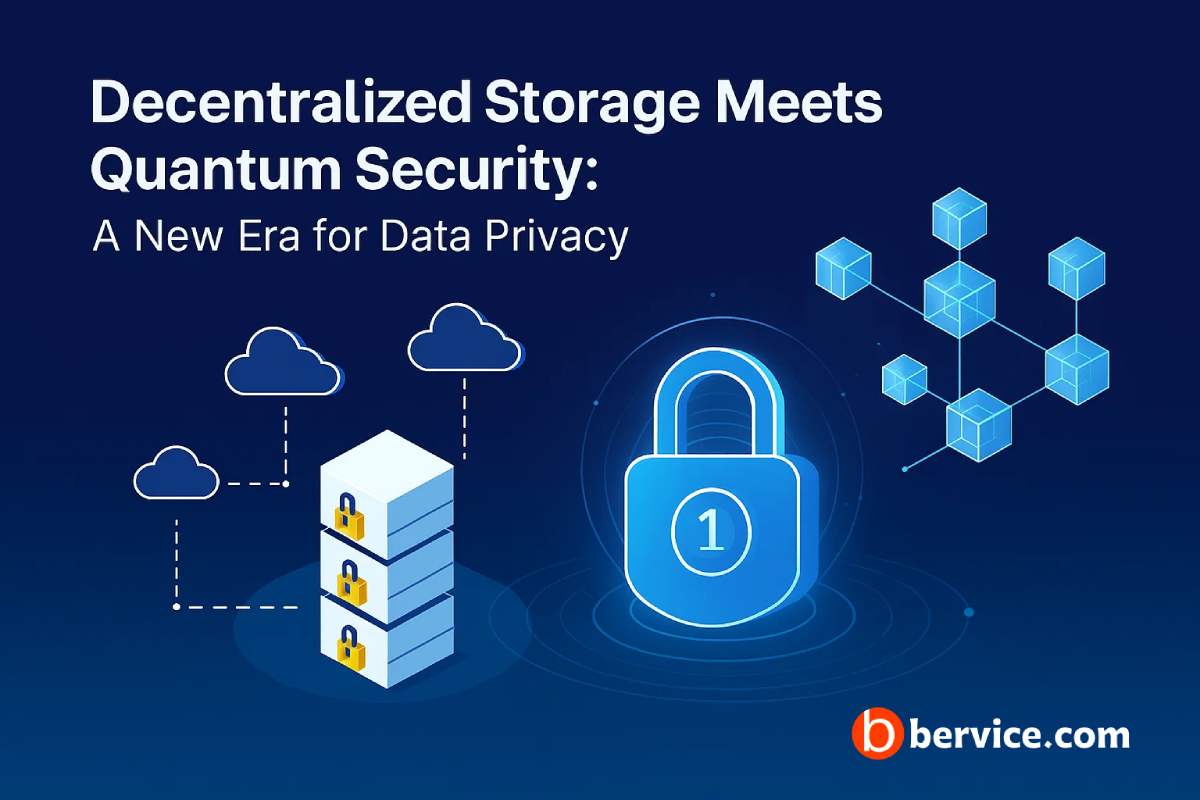Introduction: The Data Privacy Crisis
Data privacy has become one of the most pressing issues in today’s digital age. Centralized storage systems—controlled by big tech companies or governments—are increasingly vulnerable to cyberattacks, data leaks, and surveillance. At the same time, the upcoming quantum computing revolution threatens to break traditional encryption methods, leaving sensitive data at risk.
This is where the fusion of decentralized storage and quantum-resistant security emerges as a game-changer, offering a next-generation solution for safeguarding personal and corporate information.
The Rise of Decentralized Storage
Decentralized storage systems, powered by blockchain technology and peer-to-peer networks, distribute data across multiple nodes instead of relying on a single centralized server. Examples include IPFS (InterPlanetary File System) and Filecoin, which allow data to be stored redundantly across the globe.
Key advantages of decentralized storage include:
- Censorship resistance: No single entity controls the data.
- Redundancy and reliability: Data remains available even if some nodes go offline.
- Enhanced privacy: Users retain ownership of their files without intermediaries.
This model not only improves security but also democratizes the way we store and access digital information.
Quantum Computing: A Double-Edged Sword
While quantum computing promises breakthroughs in medicine, finance, and artificial intelligence, it poses a serious threat to current cryptographic standards such as RSA and ECC (Elliptic Curve Cryptography).
With quantum algorithms like Shor’s Algorithm, today’s encryption methods could become obsolete within decades—or even sooner. That’s why Post-Quantum Cryptography (PQC) is essential to prepare for a future where classical encryption no longer guarantees security.
Quantum-Resistant Encryption: The Future of Data Security
Post-quantum cryptography uses mathematical problems believed to be secure against quantum attacks, such as lattice-based and hash-based encryption.
For decentralized storage platforms, integrating PQC algorithms ensures that:
- Data remains secure for decades, even in a quantum-enabled world.
- Zero-knowledge proofs and advanced privacy protocols remain intact.
- Users retain end-to-end encryption without performance trade-offs.
This combination ensures that even if quantum computers become mainstream, data stored today stays safe tomorrow.
The Perfect Fusion: Decentralized Storage + Quantum Security
When decentralized storage and quantum security converge, they create a multi-layered defense for data privacy:
- Decentralization prevents single points of failure and censorship.
- Quantum-resistant encryption protects against future quantum attacks.
- User sovereignty ensures individuals maintain full control over their data keys and access rights.
This approach offers a future-proof architecture for sensitive industries such as healthcare, finance, and government data protection.
Real-World Applications and Use Cases
- Secure Health Records: Patients control their medical data while ensuring it stays encrypted even in a quantum future.
- Financial Transactions: Banks and crypto platforms safeguard transactions from next-gen cyber threats.
- Government Archives: Sensitive state documents remain immune to foreign surveillance.
- Personal Privacy Tools: Everyday users store files without fearing hacks or leaks.
Challenges and the Road Ahead
While promising, this technology faces obstacles:
- Performance trade-offs: Quantum-resistant algorithms may require more computing power.
- Standardization: PQC algorithms must be tested and approved by organizations like NIST.
- Adoption barriers: Businesses and governments need incentives to shift from centralized to decentralized solutions.
Nonetheless, progress in Web3, blockchain, and cryptographic research is accelerating adoption.
Conclusion: A New Era for Data Privacy
The convergence of decentralized storage and quantum security signals the beginning of a new era in data privacy. By combining distributed architecture with quantum-resistant encryption, we can build systems that are secure, private, and future-proof—giving individuals and organizations true ownership and control over their digital assets.
As quantum computing advances, adopting these technologies will no longer be optional—it will be essential for ensuring data integrity in a hyper-connected world.
Connect with us : https://linktr.ee/bervice
